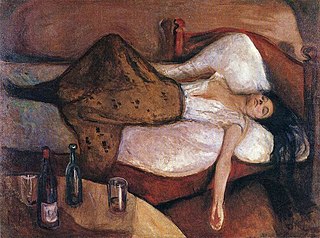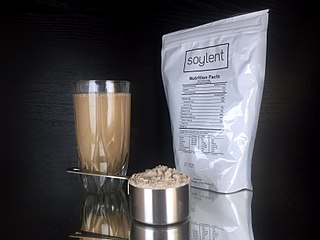History
The consumption of smart drinks and "smart drugs" began in the early 1980s when baby boomers started using because they believed these products would improve job performance and give them a competitive edge in the workplace. The popularity of smart drinks peaked during the early 1990s, as all-night techno and house music parties took place, events of the underground dance culture at the time, known as "raves". Rave enthusiasts preferred drugs such as ecstasy, methamphetamine, ketamine, or "poppers" to alcohol. Instead of drinking alcoholic beverages at raves, the dancers would drink smart drinks. Smart drinks not only held a novelty factor for the vibrant social subculture, but they also helped rave promoters by eliminating the need to secure alcohol sales permits and therefore allowed raves to be held outside of the traditional nightclub, bar or pub scene.
Smart drink ingredients often include substances such as DL-phenylalanine or L-phenylalanine, L-tyrosine, choline (trimethylaminoethanol), pyroglutamic acid, B vitamins, glucuronolactone, and DMAE (dimethylaminoethanol). These amino acids were claimed to have positive or enhanced effects on alertness, stress resistance and energy levels. Some of the acids, then considered "foods" and nutritional supplements by government agencies like the US Food and Drug Administration (FDA), changed in status and have since been removed from store shelves. Others are still available when prescribed by a doctor.

Aspartame is an artificial non-saccharide sweetener 200 times sweeter than sucrose and is commonly used as a sugar substitute in foods and beverages. It is a methyl ester of the aspartic acid/phenylalanine dipeptide with brand names NutraSweet, Equal, and Canderel. Aspartame was approved by the US Food and Drug Administration (FDA) in 1974, and then again in 1981, after approval was revoked in 1980.

Taurine, or 2-aminoethanesulfonic acid, is a non-proteinogenic naturally occurred amino sulfonic acid that is widely distributed in animal tissues. It is a major constituent of bile and can be found in the large intestine, and accounts for up to 0.1% of total human body weight.
A nutrient is a substance used by an organism to survive, grow and reproduce. The requirement for dietary nutrient intake applies to animals, plants, fungi and protists. Nutrients can be incorporated into cells for metabolic purposes or excreted by cells to create non-cellular structures such as hair, scales, feathers, or exoskeletons. Some nutrients can be metabolically converted into smaller molecules in the process of releasing energy such as for carbohydrates, lipids, proteins and fermentation products leading to end-products of water and carbon dioxide. All organisms require water. Essential nutrients for animals are the energy sources, some of the amino acids that are combined to create proteins, a subset of fatty acids, vitamins and certain minerals. Plants require more diverse minerals absorbed through roots, plus carbon dioxide and oxygen absorbed through leaves. Fungi live on dead or living organic matter and meet nutrient needs from their host.

A dietary supplement is a manufactured product intended to supplement a person's diet by taking a pill, capsule, tablet, powder, or liquid. A supplement can provide nutrients either extracted from food sources, or that are synthetic. The classes of nutrient compounds in supplements include vitamins, minerals, fiber, fatty acids, and amino acids. Dietary supplements can also contain substances that have not been confirmed as being essential to life, and so are not nutrients per se, but are marketed as having a beneficial biological effect, such as plant pigments or polyphenols. Animals can also be a source of supplement ingredients, such as collagen from chickens or fish for example. These are also sold individually and in combination, and may be combined with nutrient ingredients. The European Commission has also established harmonized rules to help insure that food supplements are safe and appropriately labeled.

An energy drink is a type of functional beverage containing stimulant compounds, usually caffeine, which is marketed as providing mental and physical stimulation. They may or may not be carbonated and may also contain sugar, other sweeteners, or herbal extracts, among numerous other possible ingredients.

Spirulina is the dried biomass of cyanobacteria that can be consumed by humans and animals. The three species are Arthrospira platensis, A. fusiformis, and A. maxima.

Nootropics, colloquially brain supplements, smart drugs and cognitive enhancers, are natural, semisynthetic or synthetic compounds which purportedly improve cognitive functions, such as executive functions, attention or memory.

Alcoholic polyneuropathy is a neurological disorder in which peripheral nerves throughout the body malfunction simultaneously. It is defined by axonal degeneration in neurons of both the sensory and motor systems and initially occurs at the distal ends of the longest axons in the body. This nerve damage causes an individual to experience pain and motor weakness, first in the feet and hands and then progressing centrally. Alcoholic polyneuropathy is caused primarily by chronic alcoholism; however, vitamin deficiencies are also known to contribute to its development. This disease typically occurs in chronic alcoholics who have some sort of nutritional deficiency. Treatment may involve nutritional supplementation, pain management, and abstaining from alcohol.

Wheatgrass is the freshly sprouted first leaves of the common wheat plant, used as a food, drink, or dietary supplement. Wheatgrass is served freeze dried or fresh, and so it differs from wheat malt, which is convectively dried. Wheatgrass is allowed to grow longer and taller than wheat malt.

Theanine, commonly known as L-theanine and sometimes L-gamma-glutamylethylamide or N5-ethyl-L-glutamine, is an amino acid analogue of the proteinogenic amino acids L-glutamate and L-glutamine and is found primarily in particular plant and fungal species. It was discovered as a constituent of green tea in 1949 and isolated from gyokuro leaves in 1950, thus rendering it a natural product. It constitutes about 1–2% of the dry weight of green tea leaves.

Hartnup disease is an autosomal recessive metabolic disorder affecting the absorption of nonpolar amino acids. Niacin is a precursor to nicotinamide, a necessary component of NAD+.

Nutrition and pregnancy refers to the nutrient intake, and dietary planning that is undertaken before, during and after pregnancy. Nutrition of the fetus begins at conception. For this reason, the nutrition of the mother is important from before conception as well as throughout pregnancy and breastfeeding. An ever-increasing number of studies have shown that the nutrition of the mother will have an effect on the child, up to and including the risk for cancer, cardiovascular disease, hypertension and diabetes throughout life.

Sports nutrition is the study and practice of nutrition and diet with regards to improving anyone's athletic performance. Nutrition is an important part of many sports training regimens, being popular in strength sports and endurance sports. Sports nutrition focuses its studies on the type, as well as the quantity of fluids and food taken by an athlete. In addition, it deals with the consumption of nutrients such as vitamins, minerals, supplements and organic substances that include carbohydrates, proteins and fats.

A smoothie is a beverage made by puréeing ingredients in a blender. A smoothie commonly has a liquid base, such as fruit juice or milk, yogurt or ice cream. Other ingredients may be added, including fruits, vegetables, non-dairy milk, crushed ice, whey powder or nutritional supplements.

A hangover is the experience of various unpleasant physiological and psychological effects usually following the consumption of alcohol, such as wine, beer, and liquor. Hangovers can last for several hours or for more than 24 hours. Typical symptoms of a hangover may include headache, drowsiness, concentration problems, dry mouth, dizziness, fatigue, gastrointestinal distress, absence of hunger, light sensitivity, depression, sweating, hyper-excitability, irritability, and anxiety.

A meal replacement is a drink, bar, soup, etc. intended as a substitute for a solid food, usually with controlled quantities of calories and nutrients. Some drinks come in powdered form or pre-mixed health shakes that can be cheaper than solid foods with identical health qualities. Medically prescribed meal replacement drinks include the body's necessary vitamins and minerals. Bodybuilders sometimes use meal replacements, not formulated for weight loss, to save food preparation time when eating 5-6 meals a day.

Hemp juice is a beverage derived from industrial hemp, made from the result of pressing the Cannabis sativa plant. The juice is obtained through a large-scale industrial cold-pressing procedure using the upper parts of the hemp plant as well as the leaves. This procedure distinguishes hemp juice from other hemp products such as hemp oil, hemp sprouts or hemp milk, which are obtained through the seeds of the hemp plant.

Industrial microbiology is a branch of biotechnology that applies microbial sciences to create industrial products in mass quantities, often using microbial cell factories. There are multiple ways to manipulate a microorganism in order to increase maximum product yields. Introduction of mutations into an organism may be accomplished by introducing them to mutagens. Another way to increase production is by gene amplification, this is done by the use of plasmids, and vectors. The plasmids and/ or vectors are used to incorporate multiple copies of a specific gene that would allow more enzymes to be produced that eventually cause more product yield. The manipulation of organisms in order to yield a specific product has many applications to the real world like the production of some antibiotics, vitamins, enzymes, amino acids, solvents, alcohol and daily products. Microorganisms play a big role in the industry, with multiple ways to be used. Medicinally, microbes can be used for creating antibiotics in order to treat infection. Microbes can also be used for the food industry as well. Microbes are very useful in creating some of the mass produced products that are consumed by people. The chemical industry also uses microorganisms in order to synthesize amino acids and organic solvents. Microbes can also be used in an agricultural application for use as a biopesticide instead of using dangerous chemicals and or inoculants to help plant proliferation.
Pre-workout is a generic term for a range of bodybuilding supplement products used by athletes and weightlifters to enhance athletic performance. Supplements are taken to increase endurance, energy, and focus during a workout. Pre-workout supplements contain a variety of ingredients such as caffeine and creatine, differing by capsule or powder products. The first pre-workout product entered the market in 1982, and since then the category has grown in use. Some pre-workout products contain ingredients linked to adverse effects. Although these products are not regulated, the Food and Drug Administration (FDA) warns consumers to be cautious when consuming them.
















